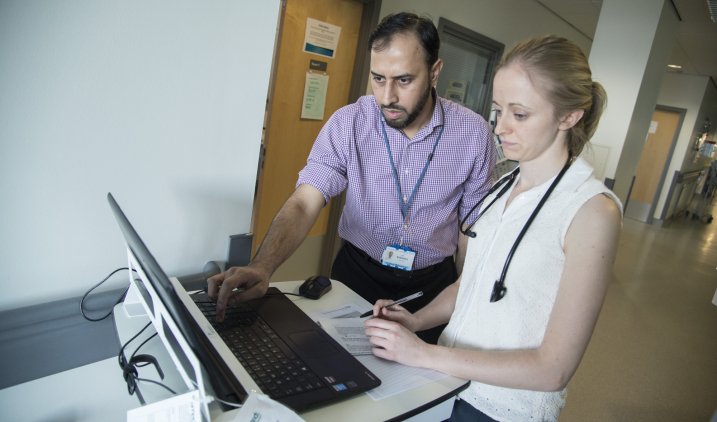Psychiatry of intellectual disability (PID)
Psychiatrists working in intellectual disability assess and treat people with intellectual or learning disabilities.
This can include the assessment and management of neurodevelopmental disorders such as attention deficit hyperactivity, autism spectrum disorder and epilepsy.

Life as an intellectual disability psychiatrist
Your patients will usually be adults aged over 18 years as younger patients tend to be seen by a child and adolescent psychiatrist.
You’ll be required to adopt a holistic approach as patients with intellectual disability often have physical conditions such as cerebral palsy or epilepsy.
Patients often present non-specifically. For example, they demonstrate withdrawal or a change in behaviour. You’ll need to investigate and establish the cause in your diagnosis.
Common mental health conditions you’ll treat include:
- anxiety
- bipolar disorder
- depression
- obsessive compulsive disorder
- schizophrenia
You’ll work as part of a multidisciplinary team and be expected to collaborate with colleagues and a patient’s family and carers.
Psychiatry is an interesting academic discipline, whether you are interested in the biological basis of mental health problems (e.g. dementia in people with Down’s syndrome, behavioural phenotypes of genetic disorders), or the development of innovative service models or forensic aspects of intellectual disability.
How much can I earn?
How about the benefits?
- make a difference
- flexible and part-time working
- high income early in your career
- work anywhere in the world
- excellent pension scheme
- good holiday entitlement
- NHS discounts in shops and restaurants
Must-have skills
- excellent communication skills to manage a wide range of relationships with colleagues, and patients and their families
- emotional resilience, a calm temperament and the ability to work well under pressure
- teamwork and the capacity to lead multidisciplinary teams
- problem-solving and diagnostic skills
- outstanding organisational ability and effective decision-making skills
- first-class time and resource management for the benefit of patients
In addition, intellectual disability psychiatrists need to demonstrate:
- empathy and compassion and the ability to treat others with understanding and respect
- respect for people with intellectual disabilities and the contribution they make to society
- patience
- excellent listening skills
- willingness to build relationships with their patients
Entry requirements
If you already have a degree, you could study for a four-year postgraduate degree in medicine.
Some medical schools look to recruit a mix of students from different backgrounds and geographical areas, so your educational and economic background and family circumstances could be considered as part of your application.
What are my chances of starting a career in psychiatry of intellectual disability?
How to become an intellectual disability psychiatrist
After your foundation programme, you can apply for paid specialty training to become an intellectual disability psychiatrist, which will take a minimum of six years.
Where a career as an intellectual disability psychiatrist can take you
- specialise or conduct research
- teach medical students or postgraduate students in training
- get involved in research at universities, the NHS or private sector